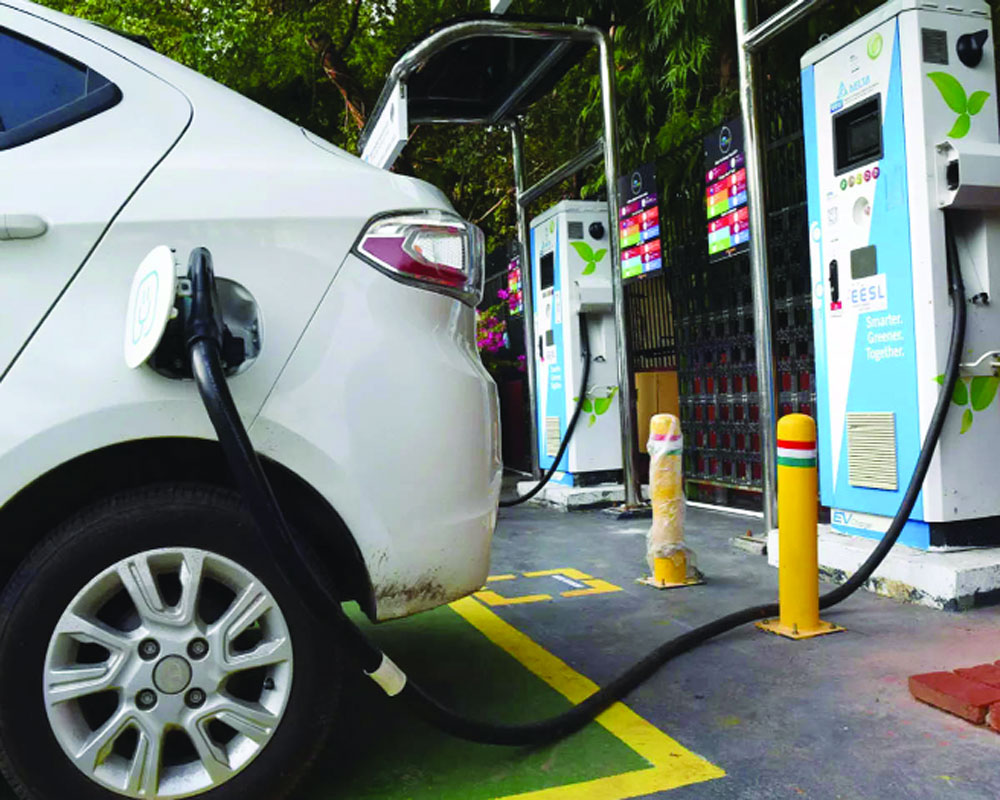As the wheels of innovation turn, EVs are not only driving us forward but also steering us toward a greener horizon
In the wake of the global climate crisis, the need for innovative solutions to combat environmental challenges has never been more pressing. India, a country known for its vibrant startup ecosystem, finds itself uniquely positioned to drive a transformative change through electric vehicle (EV) companies. These enterprises are not just shaping the future of transportation but also revolutionizing the nation's startup landscape, with far-reaching implications for sustainability, economic growth, and technological advancement.
Thriving startup ecosystem
India's startup ecosystem has undergone a remarkable evolution over the past decade, establishing itself as a fertile ground for innovation. Within this ecosystem, the EV sector has emerged as a dynamic force, leveraging technology and green initiatives to redefine mobility and address environmental concerns. A recent report by the National Association of Software and Service Companies (NASSCOM) predicts that India's EV industry could reach a staggering market value of $206 billion by 2030, with startups contributing significantly to this growth.
Environmental imperative
As India strives for sustainable development in the face of rising pollution and climate change concerns, EVs offer a viable solution to mitigate carbon emissions and reduce reliance on fossil fuels. With the nation's commitment to the Paris Agreement, targeting 40% of energy generation from renewables by 2030, the role of EV companies becomes pivotal in achieving this goal. By transitioning from conventional internal combustion engines to electric propulsion, India can substantially reduce its carbon footprint and pave the way for a cleaner, greener future.
Job creation
The surge in EV startups isn't merely an environmental endeavour; it also carries significant economic implications. A report by the World Economic Forum highlights that the electric vehicle value chain could potentially generate up to 10 million jobs worldwide by 2030. Addressing challenges
While the potential of EV startups to drive green innovation is undeniable, several challenges must be addressed. The lack of charging infrastructure is a primary concern, impeding the widespread adoption of EVs. However, this challenge also presents an opportunity for startups to innovate by developing efficient charging solutions and collaborating with the government to expand the charging network. Moreover, integrating renewable energy sources into charging infrastructure can further enhance the sustainability of the EV ecosystem.
Government support
The Indian government's recognition of the importance of EVs is reflected in its policies and initiatives. The Faster Adoption and Manufacturing of Electric Vehicles (FAME) scheme, along with tax incentives and subsidies, aims to encourage EV adoption and domestic manufacturing. However, a sustained collaboration between the government and startups is essential to address regulatory hurdles, standardize policies, and create an environment conducive to innovation.
India's endeavours to foster a green startup ecosystem transcend national boundaries. The success of its EV startups can serve as a global inspiration, showcasing how technological innovation can be harnessed to address pressing environmental challenges.
The accelerating growth of EV companies within India's startup landscape holds the promise of transformative change. With strategic government support, robust private sector innovation, and heightened public awareness, India's EV startups can steer the nation towards a sustainable, eco-friendly, and economically prosperous future. As the wheels of innovation turn, EVs are not only driving us forward but also steering us toward a greener horizon.
(The writer is the Founder & CEO, of Motovolt Mobility, views are personal)
























